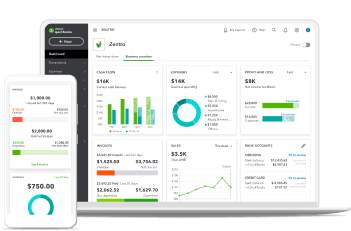When you're a self-employed freelancer, you can get stuck doing all the admin work yourself. That's why using freelance accounting software is so important. It takes care of your finances while you focus on your freelance career.
Regardless of what stage your freelance business is in, improving your financial management skills will save you time and stress as you work on the success of your business.
Read on to discover why accounting is essential, what accounting software will work best for your small business, and a step-by-step process on how to do accounting for your business.



